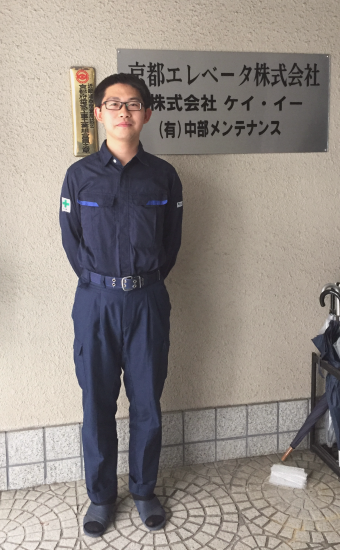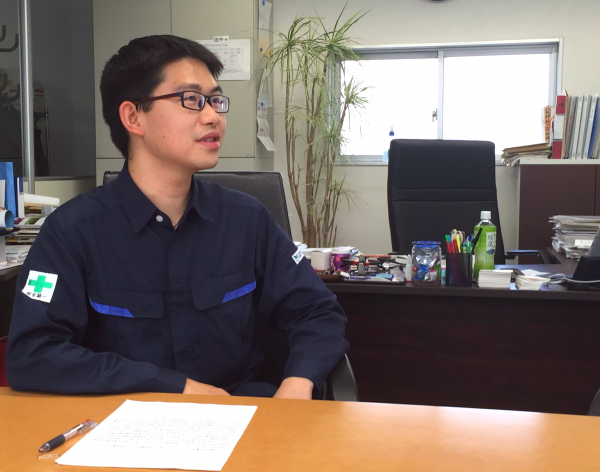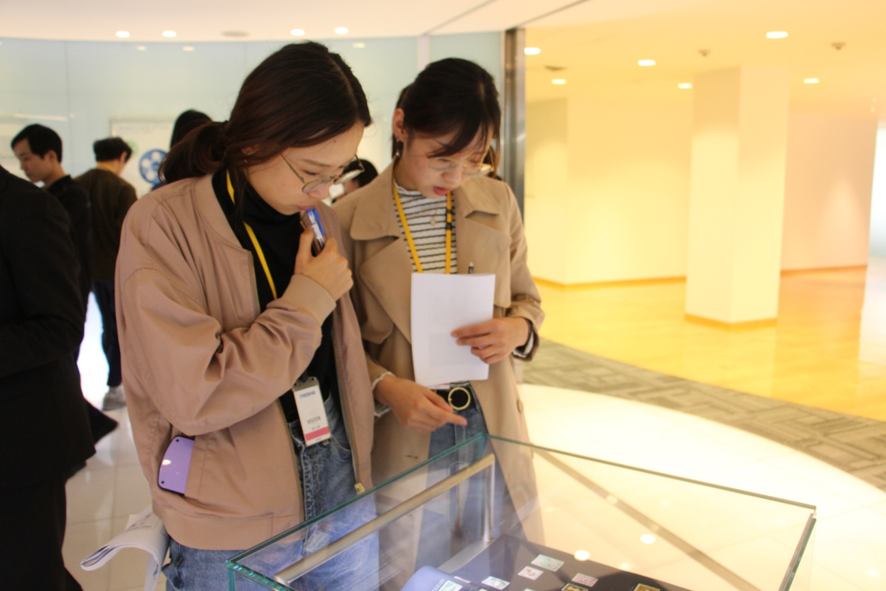How to Get an Internship in Japan
2016.09.21
Job-Hunting in Japan
Q: When did you first begin thinking about job hunting in Japan?
A: To be honest, I was already thinking about working in Japan before I even got here. But I also thought it would be hard to come straight to Japan for the first time and jump straight into it, so I decided I would start by studying here first, and think about jobs along the way. Getting a PhD and becoming a researcher didn’t sound bad to me at all, either, of course, but in the end, I decided that being a researcher wasn’t quite the right path for me personally, and that I wanted to enter the workforce sooner rather than later.
Q: Other than interning, did you look for jobs in any other way?
A: No, I didn’t really do anything other than the internship. I took about six months to let myself get used to life in Japan, and then over the course of the next six months I started looking for work. So I didn’t really have time for anything other than the internship in the time since I came to Japan. I’m really glad I had the opportunity to intern at Kyoto Elevator, because I think it’s a great company, and I can work here with a good sense of security, so I think I made a good choice. I’m really thankful for getting the chance to work here.
Q: Is there anything you think was particularly good about finding a job through an internship?
A: Oh, of course. I think interning first, and then working at a company is a really natural way of starting work. Before they actually start working, students can come to understand the principles of working life, and experience the reality. They can try their hand at the actual work they’d be doing, and figure out whether or not their skills and personality are suited for that company. I think it’s great for your career development, getting to know what you’re good at, and what kind of environment you want to work in.
Worries about job-hunting overseas?
Q: What sort of things were you worried about, looking for a job in another country?
A: There were a lot of things that worried me about looking for work in Japan, but these were probably the three biggest: the language barrier, culture shock, and visa applications.
First of all, the language barrier: it was the first big problem I encountered when I came to Japan. If you can’t speak, you can’t really do anything. It’s especially important to have good language skills if you want to work here. HR managers may give some amount of leeway or understanding to international students, but if you can’t even manage typical conversation, I think it’s going to be really difficult to get into a company.
Then there are the cultural differences. There are lots of differences between countries, of course, and you can tell a lot about a country’s values from their customs. At work, you can often find yourself misunderstood by your colleagues, or that they don’t understand your logic or reason for doing something. It really depends on how much you can understand Japanese society. I think the problems will eventually go away if you pay attention every day, though, and watch the people around you, think, understand, and remember, slowly but surely.
My other worry was applying for my visa. In order to work in Japan, you need a work visa. Just getting into a company is not a guarantee that you’ll get one, though. There’s just one type of visa status for international students in Japan, too—a student visa. In order to apply for a work visa, you need to report your company’s stock holdings, the number of employees, annual sales, the average salary, and all sorts of other information to the Immigration Bureau, and then you have to wait for approval. Simply put, students have to find a company that stable, trusted, and contributing to society if they want to get a work visa.
To resolve these worries, and all the others that students looking for work in Japan may face, I think your own personal effort and the effort of the company on your behalf are both crucial elements.
How can I find an internship in Japan?
 Q: What led you to your internship at Kyoto Elevator?
Q: What led you to your internship at Kyoto Elevator?
A: I found my internship through my school’s website. There was a link to a company called Nasic-I Support Co, Ltd. When I first started job hunting, I began by gathering information from my school’s job support site, which was where I found the column about Nasic-I, and my chance to intern.
Is the job fun? What about the work environment?
Q: Can you tell us why you chose to enter Kyoto Elevator as a full-time employee?
A: I was an intern at Kyoto Elevator for six months, so I had a long time to really get to know the work environment, the people, and the day-to-day work itself.
I think the biggest factor in my decision was the stability of the company. It’s an important factor in looking for a job at any rate, but it turned out to be a lot more important that I thought it was. The main thing that we do here is the maintenance and inspection of elevators. In other words, we have to comply with the strict guidelines that are set down by law, so our work has much less to do with the state of the market at large than it does with safety and adhering to legal standards, so in that sense it’s extremely secure work.
When students come to Japan, I think one of the first things they think about is security. If you’re not yet used to life in another country, and you start working for an unstable company, and all sorts of pressure is put on you at work, you’re going to lose that sense of stability in your life, and you probably won’t be able to continue working there. When you start a job in another country, it’s hard to make a living as an adult member of society with only your own power if the company you enter isn’t willing to put in the effort to support and train you.
Q: What is the most fun or interesting thing about your job?
A: For me, the most interesting thing about my job is that I can gain new technical skills every day, and apply them right away to the problems at hand. I also like that I can follow up on things I couldn’t completely solve before, root out the problem, and discover a completely new solution, which contributes to this new cycle of learning for me. My job now is mostly a technical support role, but I’m in charge of maintaining every single layer of the circuit board for the elevator’s reporting system, so it’s really up to me to make sure the elevator is running smoothly and safely. For me, that’s more than a job worth doing!
Q: Do you have any future career goals or dreams for down the road?
A: My biggest dream for the future is just to have a fulfilling life, and protect the people most important to me. I’m not yet totally sure about my career path, but for now, I want to become a great engineer with the work I’m doing here. I also want to learn how to make sales smoothly, and get along with all sorts of people I may meet, and eventually supervise hiring, too.
Someday, I’d like to bring Kyoto Elevator to China, set up a subsidiary over there, and get to the point at which I could manage it myself.
A message for current students
Q: Could you share a message for current international students who are looking for work in Japan?
A: It’s not an easy thing for international students—who have little actual experience in Japanese society—to find work here. The most important thing is definitely polishing your language skills as much as you can. If you can speak fluently, you’ll be an effective communicator, and from there, you’ll be able to earn people’s trust and confidence.
Next, you need to consider yourself and your strengths carefully: what is something that only you can do, how can you contribute to society, and what kind of job will allow you to best gain the skills that will help you make that contribution? If there’s a company at which you want to work, what do you lack that you need to accomplish in order to work there? If you can find an answer to these questions, you’ll be able to lay out a clear job hunting plan.
All that’s left is your own passion and effort, and applying it for as long as your search takes, and you should be able to find the workplace that’s just right for you.
What about a message for Japanese companies?
Q: Is there anything you’d like to say to Japanese companies that are thinking about hiring foreigners or international student interns?
A: Students that come all the way to Japan have studied long and hard, and I think there are only a few of them that simply want to take their knowledge and experiences right back with them to their home countries. Many students come to Japan hoping to stay here, and contribute positively in the workforce.
Many students apply their effort full force to job searching in the time they have before their visas expire. I actually know dozens of humanities students who spent a full year looking for work, but eventually had to return to their countries without a single job offer. On the hand, I also have some friends—science majors who attended famous national universities—who had three offers in hand from major corporations a year before graduation. And that was even considered average for graduates there. To some extent, this huge difference in the demand for humanities versus science majors can’t be helped, but I think humanities majors still have a lot to offer companies. I would really like for companies that are thinking about taking on interns to really consider humanities students, too, to spend some time with them, get to know one another, and find employees that will really be good for the company.
Study Kyoto supports international students who want to work in Kyoto!
What do you think? It’s possible not only to find work in Japan, but to find a chance to really get to know workplaces in Japan. It may not be a breeze job searching in a foreign country, but it’s an incredible opportunity if you give it a try.
The International Student Study Kyoto Network offers paid opportunities for international students to work at the businesses of Kyoto. We hope to further your understanding of the Japanese workplace, and support your job search through our paid internship program.
Study Kyoto’s homepage has other video interviews with former international students who now work in Kyoto, as well as advice and useful information to help you in your job search. Check it out!
Finding Employment
https://www.studykyoto.jp/wp/en/work/employment/
Video Interviews with Alumni
https://www.studykyoto.jp/wp/en/work/oboginterview/
Employment Support
https://www.studykyoto.jp/wp/en/work/support/
Study Kyoto’s job-hunting site for international students provides students with up-to-date information for “shuukatsu” events in Kyoto!
Check it out! (Website is in Japanese only)
International student employment information portal site 「Beyond Study Kyoto」













